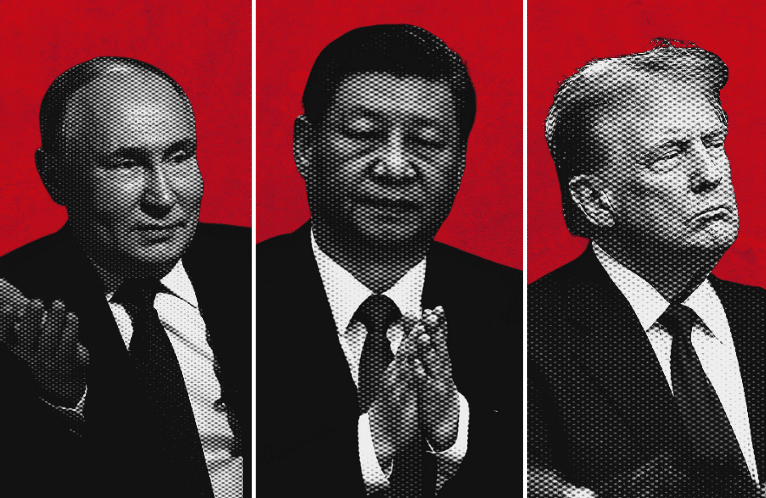China This Week: CHINA! CHINA! CHINA!

China This Week, Feb. 27- Mar. 4
Want to know about the hottest trending topics in China, you won’t see on TV or newspapers? Follow the weekly updates from U.S.-China Perception Monitor, “China This Week”. We are providing you with the most talked-about topics, most interesting points and must-know information of Chinese culture and society.
1.Chinese politician selfie ban
It is often said that the government is out of touch with its people. This week, China became a key example of this saying they are banning the selfie sticks of the People’s delegates who will be attending the National Lianghui (全国两会).

(Civil disobedience selfie!)
The National Lianghui refers to annual plenary sessions of two organizations that make national-level political decisions: the National People’s Congress (NPC) and the National Committee of the Chinese People’s Political Consultative Conference (CPPCC).
It is believed that the ban was implemented because there were too many delegates taking selfies during last year’s session. Such behavior complicates China’s position as the People’s delegates, in the mind of the Party, should be restrained, with serious looks on their faces.
(“I wish I was holding a phone right now…”)
2. Weibo Woes
A Chinese real estate tycoon, who has over four million followers on Weibo, was banned from the platform after saying critical things of Chinese President Xi Jinping.
Ren Zhiqiang, who some call, “China’s Donald Trump” and “Big Cannon”, challenged President Xi’s call for the media to serve and protect the Communist Party. Ren argued that the media should serve taxpayers instead and argued that if media is loyal to the party “then the people will be abandoned in a forgotten corner.”

(Ren Zhiqiang’s Weibo account)
Whether Ren will be able to keep his Party membership is still in question.
Besides Ren, other “Big V”s, celebrities and high-profile commentators, have come under attack from their controversial opinions.
The Famous Chinese actor Sun Haiying was also banned on Weibo. Based on information published online Feb. 11th, CCTV dropped the war film “8848” starring Sun Haiying, leading to some heated discussions. Sun Haiying took to his own Weibo, criticizing CCTV’s decision to drop the film. CCTV did not publicly discuss the reasons it cancelled the broadcast of “8848”, but various online analysis concluded that it is related to the heated rhetoric of Sun Haiying’s Weibo.

(Sun Haiying’s blocked Weibo account)
Mr. Sun once said, “Where there’s freedom, there’s no need for firewalls.”

(Where there are firewalls, there’s no need for Sun Haiying).
3. Let them eat 甘其食!
A Chinese steamed bun chain restaurant “甘其食” (Gan Qi Shi) based in Hong Zhou has announced that it will be expanding to Harvard Yard.

(Steamed buns coming soon)
The chain has set its price at $3 per bun, a price “comparable to McDonald’s,” the restaurant manager said. The Chinese chain restaurant comes at a time when Boston and Massachusetts have been especially receptive of Chinese business and have recently begun a Chinese language radio station.
Gan Shi Qi plans to sell hand-made buns that will cater to the American consumers, which means more chicken stuffed buns, and even lobster buns, or as the Bostonians call it “lahbstah” buns.
4. China’s netizens mock Donald Trump
Believe it or not, Donald Trump is not only well-known in China, but he has at least two Chinese names. Trump is called 唐床破, or Tang Chuangpo. This is a translation for “Donald Trump” into a Chinese name with “Tang” (it sounds similar to Don-) as a surname and “Chuangpo” (like “Chuanpu,” it sounds similar to Trump) as a given name. In literal meaning, “Chuangpo” means “bed broken.” If there is a meaning behind it, it’s up for interpretation. The other one is more populous. 唐川普 (Tang Chuanpu) is a very authentic Chinese name, and there are probably people who share the name with him. Its meaning is “Mandarin in Sichuan province.”, or “Mandarin with Sichuan accent.” A netizen comments on this name: “In order to promote our Sichuan Mandarin, I support this doubi to be the US president.”
“Doubi,” is online slang that literally means “funny (female genitalia),” but is closer in meaning to “funny douchebag.”

The Chinese media has been following the US presidential election closely. A newspaper affiliated with the Chinese army wrote of Super Tuesday results: “Whether Trump becomes a joke, or lets the American democratic elections become a joke, let us wait and see.”
By AARON WALAYAT, compiled by YAO SUN on USCNPM








